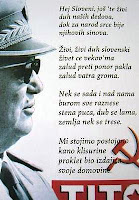"The Wall of Steel", Taldir Jaffrenou ,Writer and Anthem Composer
 Francois Joseph-Claude Jaffrennou (March 15, 1879 - March 26, 1956) was a Breton language writer and editor. He was a Breton nationalist and a neo-druid bard. He is also known as François Taldir-Jaffrennou, since he also used the Druid name Taldir ("Wall of Steel"). He was one of the pioneers of the Breton autonomous movement. He composed the National anthem of Britanny.
Francois Joseph-Claude Jaffrennou (March 15, 1879 - March 26, 1956) was a Breton language writer and editor. He was a Breton nationalist and a neo-druid bard. He is also known as François Taldir-Jaffrennou, since he also used the Druid name Taldir ("Wall of Steel"). He was one of the pioneers of the Breton autonomous movement. He composed the National anthem of Britanny.Breton nationalism is the nationalism of the traditional province of Brittany in France. Brittany is considered to be one of the six Celtic nations (along with Cornwall, Ireland, Wales, the Isle of Man and Scotland). Like the nationalism of many neighboring regions, Breton nationalism combines political as well as cultural aspects.
The political aspirations of Breton nationalists include the desire to obtain the right to self-rule, whether within France or independently of it, and to acquire more power in the European Union, United Nations and other international bodies.
Breton cultural nationalism includes an important linguistic component, with Breton and Gallo speakers seeking equality with French language in the region. Cultural nationalists also seek a re invigoration of Breton music, traditions and symbols, and the forging of strong links with other Celtic nations.
The French government's official position is to consider Brittany as a part of France, a position claimed to date from the time when the March of Neustria was controlled by Roland, but dating officially from the dynastic marriage in 1491 of Anne, Duchess of Brittany with the king of France. This could include a range of views, from allowing Brittany a devolved government to curbing wishes for independence through to the extremes of banning Breton nationalist parties entirely and the Breton and Gallo languages.






